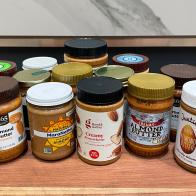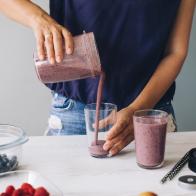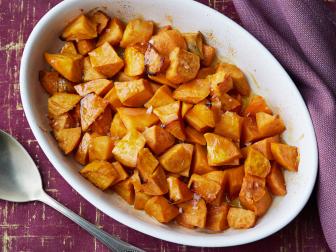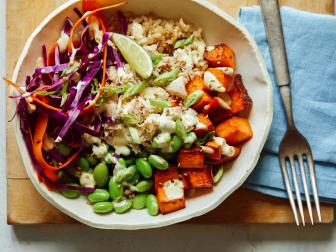5 Nutrient-Dense Foods You Should Be Eating Every Week, According to a Dietitian
Skip the latest health craze and opt for these tried-and-true staples.
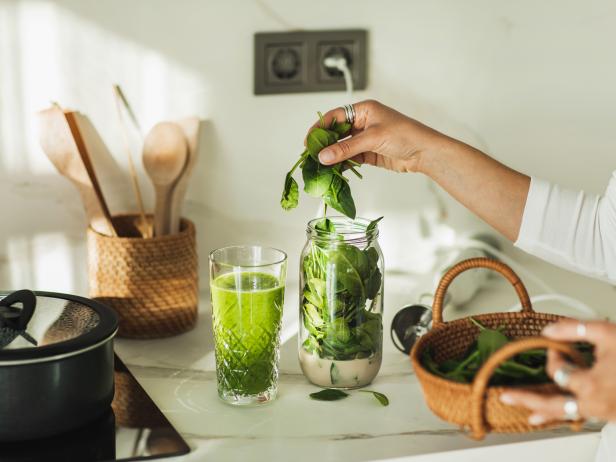
Anastasiia Krivenok/Getty Images
Maintaining a balanced and nutritious diet is essential for overall health and well-being. While super trendy “superfoods” often steal the spotlight, there are some nutrient-packed staples that stand the test of time and are worth including in your weekly eating regimen. Check out these five nutrient-dense foods that are packed with essential vitamins, minerals and antioxidants and should be on your weekly grocery list.
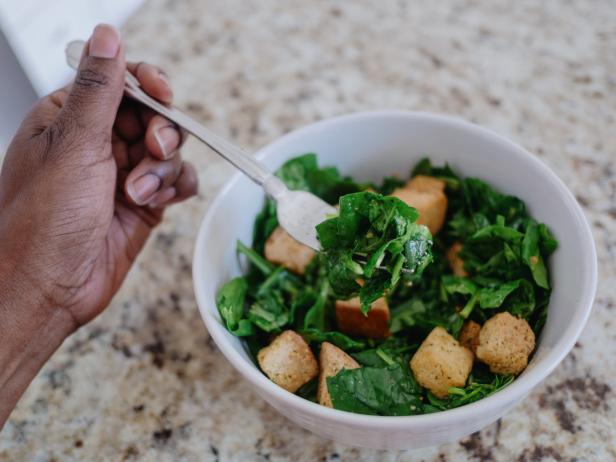
Grace Cary/Getty Images
Spinach
Spinach is a versatile leafy green vegetable known for its impressive nutrient profile. It’s low in calories and packed with vitamins A, C and K, and minerals such as folate, iron, magnesium and potassium. The high vitamin K content aids in blood clotting and bone health, while vitamin A promotes good vision and immune function.
Additionally, spinach contains antioxidants like lutein and zeaxanthin, which are crucial for eye health. These antioxidants also help to combat oxidative stress, reducing the risk of chronic diseases such as heart disease and some cancers.
Spinach has a mild flavor and tender texture making it easy to add to numerous dishes. Consider using fresh spinach leaves as a base for salads or adding a serving to your favorite smoothie recipe for an extra nutrient boost.

Peter Carruthers/Getty Images
Sweet Potatoes
Sweet potatoes are a popular root vegetable known for their vibrant color and natural sweetness. They are an excellent source of complex carbohydrates, dietary fiber and essential vitamins such as vitamin C, vitamin A (from beta-carotene) and several B vitamins. Sweet potatoes also provide potassium, manganese and a source of antioxidants.
The high beta-carotene content found in sweet potatoes is converted into vitamin A, supporting vision, skin health and immune function. Dietary fiber aids in digestion, while complex carbohydrates provide sustained energy throughout the day.
Sweet potatoes are incredibly versatile and can be prepared in a variety of delicious ways. Enjoy a baked or roasted sweet potato as a nutritious side dish or substitute traditional mashed potatoes with sweet potato mash for a sweeter, nutrient-rich alternative.

10'000 Hours/Getty Images
Honey
Honey is a natural sweetener produced by bees from the nectar of flowers. Unlike refined sugars, honey has trace amounts of 35 different naturally occurring vitamins, minerals, antioxidants and amino acids, and offers several health benefits.
A review of published trials found that honey, especially raw honey, can be really good for your heart and metabolism. Researchers at the University of Toronto discovered that adding honey to your diet was linked to lower levels of blood sugar, total and “bad” LDL cholesterol, triglycerides, and even a marker for non-alcoholic fatty liver disease. Honey also has natural antibacterial properties, making it useful for soothing sore throats and promoting wound healing.
Honey can be a versatile and pleasantly sweet addition to your diet. Use it to sweeten tea, coffee, or homemade lemonade. You can also incorporate honey into salad dressings, marinades and sauces for a touch of natural sweetness.

ahirao_photo/Getty Images
Tuna
Tuna is a popular fish known for its rich flavor and excellent source of lean protein. It’s especially rich in omega-3 fatty acids, which help to promote heart health by reducing inflammation and lowering triglyceride levels. Tuna is also packed with important nutrients like vitamin D, selenium and B vitamins, which support energy metabolism and immune function.
Tuna comes in various forms, including fresh, canned and frozen, making it accessible, convenient, and easy to include in your weekly meals. Try adding canned or fresh tuna to salads for a protein-packed meal or using it as a filling for sandwiches or wraps, combined with vegetables and whole-grain bread or tortillas.
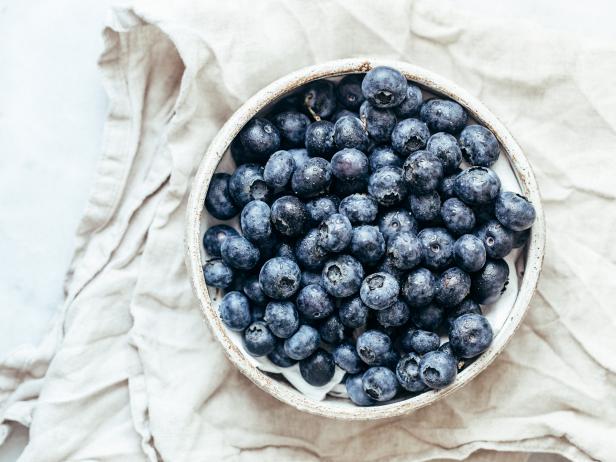
izhairguns/Getty Images
Berries
Berries, including strawberries, blueberries, raspberries and blackberries, are small fruits with a big burst of flavor and nutrition. They are rich in vitamins C and K, dietary fiber and a variety of antioxidants such as anthocyanins. Antioxidants help protect cells from damage caused by free radicals, reducing the risk of chronic diseases like heart disease, cancer and diabetes. The fiber in berries supports digestive health and aids in weight maintenance.
Berries can be enjoyed in several delicious and creative ways. Add fresh or frozen berries to cereal, oatmeal or yogurt for a nutrient-packed start to your day or enjoy berries on their own as a healthy, satisfying snack. You can also blend a serving of berries into your favorite smoothie recipe for a nutritious addition.
Bottom Line: Incorporating nutrient-dense foods into your weekly diet is a great way to enhance your health and overall well-being. Foods such as, spinach, sweet potatoes, honey, tuna and berries, offer a unique set of nutrients and health benefits that can contribute to a balanced and wholesome diet. By understanding the key nutrients and benefits of these foods and exploring creative ways to include them in your meals, you can enjoy delicious, satisfying, and health-promoting dishes every week.
*This article was written and/or reviewed by an independent registered dietitian nutritionist.
Try These Recipes
Related Content:


















